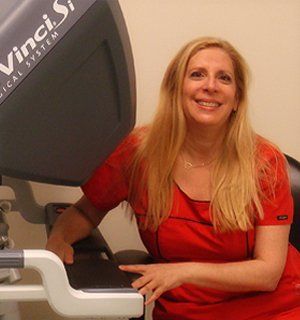FAQ's & da Vinci Robotics
da Vinci Robotics
The da Vinci surgical system is a breakthrough surgical technology that allows for a minimally invasive approach to common gynecologic surgical conditions. Dr. Sherri Levin has been performing da Vinci assisted surgeries since 2007 and has completed over 1,600 cases as of 2019. She currently teaches doctors from around the country the appropriate utilization of the da Vinci system in routine and advanced cases. As a result of her experience and expertise, she was asked to appear on The Doctors as an expert on this surgical approach in 2008. Most recently, she was designated a da Vinci Gynecologic Epicenter. Dr. Amelie Chu and Dr. Katherine Schnitzer-Whitty are also certified daVinci robotic surgeons.
Dr. Levin is one of a select few OB/GYNs in the country Certified by the American Board of OB/GYN as a Minimally Invasive Gyn Surgeon (MIGS). This Certification is bestowed upon GYN Surgeons who have expertise in the Most Advanced Minimally Invasive GYN Surgeries as well demonstrating this expertise by completing a large volume of such surgeries with excellent outcomes.
We believe that almost anyone is a candidate for a da Vinci surgery and continue to be amazed by the phenomenal results that this new surgical system provides. Listed below are some common questions and answers on the da Vinci system...
Robotic Patient Testimonials
Tracy W
Christine R
Tony S
I am so glad I had the surgery,

